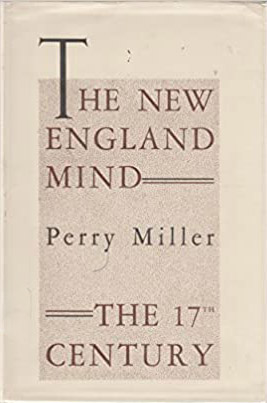

In this integrated series of brilliant and witty essays which he describes as “pieces,” Perry Miller invites and stimulates in the reader a new conception of his own inheritance. In this book, as in all his work, the author of The New England Mind: The Seventeenth Century The New England Mind: From Colony to Province and The Transcendentalists, emphasizes the need for understanding the human sources from which the American mainstream has risen. Thus left alone with America, who were they? And what were they to do?

For the second generation in America discovered that their heroic parents had, in fact, been sent on a fool’s errand, the bitterest kind of all that the dream of a model society to be built in purity by the elect in the new continent was now a dream that meant nothing more to Europe. Miller’s engrossing account of what happened to the European mind when, in spite of itself, it began to become something other than European. This crucial uncertainty of the age is the starting point of Mr. But the original speaker’s underlying concern was with the fateful ambiguity in the word errand. Like so many jeremiads of its time, this sermon appeared to be addressed to the sinful and unregenerate whom God was about to destroy. The title, Errand into the Wilderness, is taken from the title of a Massachusetts election sermon of 1670. Alfred Kazin once referred to him as 'the master of American intellectual history. He was an authority on American Puritanism, and one of the founders of what came to be known as American Studies. Miller makes this abundantly clear and real, and in doing so allows the reader to conclude that, whatever else America might have become, it could never have developed into a society that took itself for granted. Perry Miller was an American intellectual historian and Harvard University professor. Disguised from twentieth-century readers first by the New Testament language and thought of the Puritans and later by the complacent transcendentalist belief in the oversoul, the related problems of purpose and reason-for-being have been central to the American experience from the very beginning. They go to the roots of seventeenth-century thought and of the ever-widening and quickening flow of events since then. These questions are by no means frivolous. Miller’s lifelong purpose to answer: What was the underlying aim of the first colonists in coming to America? In what light did they see themselves? As men and women undertaking a mission that was its own cause and justification? Or did they consider themselves errand boys for a higher power which might, as is frequently the habit of authority, change its mind about the importance of their job before they had completed it?

#PERRY MILLER ERRAND INTO THE WILDERNESS DRIVER#
By braiding the development of the modern intelligence agency with the story of postwar American religion, Errand into the Wilderness of Mirrors delivers a provocative new look at a secret driver of one of the major engines of American power.The title of this book by Perry Miller, who is world-famous as an interpreter of the American past, comes close to posing the question it has been Mr. As Graziano makes clear, these misconceptions often led to tragedy and disaster on an international scale. But more tellingly, Graziano shows, American intelligence officers were overly inclined to view powerful religions and religious figures through the frameworks of Catholicism. In a practical sense, this was because the Roman Catholic Church already had global networks of people and safe places that American agents could use to their advantage. Graziano argues that the religious approach to intelligence by key OSS and CIA figures like “Wild” Bill Donovan and Edward Lansdale was an essential, and overlooked, factor in establishing the agency’s concerns, methods, and understandings of the world. Fittingly, Errand into the Wilderness of Mirrors investigates the dangers and delusions that ensued from the religious worldview of the early molders of the Central Intelligence Agency. Michael Graziano’s intriguing book fuses two landmark titles in American history: Perry Miller’s Errand into the Wilderness (1956), about the religious worldview of the early Massachusetts colonists, and David Martin’s Wilderness of Mirrors (1980), about the dangers and delusions inherent to the Central Intelligence Agency.


 0 kommentar(er)
0 kommentar(er)
